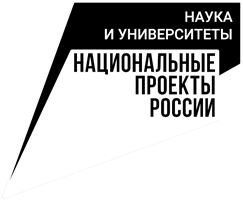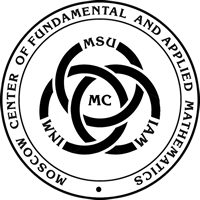Sino-Russian Mathematical Challenge Fund - 2024
Notice on Releasing the Guidelines for the Application of the Sino-Russian Mathematical Challenge Fund by Sino-Russian Mathematics Center.
Relevant units:
In order to support outstanding scholars in carrying out scientific research work combining mathematics and industry, build a platform for cooperation between production, learning and research, and explore a mechanism for collaborative innovation between academia and industry, Sino-Russian Mathematics Center launched the Sino-Russian Mathematical Challenge Fund (Mathematical Challenge Fund for short). The Mathematical Challenge Fund is operated by Peking University and Lomonosov Moscow State University in China and Russia respectively. The Mathematical Challenge Fund Technical Management Committee is responsible for coordinating the evaluation and funding of the Fund's projects.
The declaration matters are hereby notified as follows.
Eligibility requirements for declaration
- The applicant of the project is a university or scientific research institute registered in China or Russian Federation, with independent legal entities, strong scientific and technological research and development capabilities and conditions, experienced international cooperation foundation, and standardized operation and management.
- Applicants must have a senior title or doctorate degree and be born after January 1, 1964.
- The applicant shall be the proposer of the main research idea of the project and the scientific and technological personnel who actually preside over the research.
- Each applicant is limited to apply one project.
Application process
- The applicant organizes the application in the form of a project according to the research content in the direction of the guide. The project shall be declared as a whole and shall cover all indicators in the corresponding guide direction. The project application unit recommends one scientific researcher as the project leader.
- Focus on the guide direction and integrate advantageous teams to jointly tackle key challenge. Encourage competent young researchers to take the lead as project leaders.
- The specific work flow for the application and review of the Mathematical Challenge Fund project is as follows.
I. The project applicant fills in the Application Form for the Sino-Russian Mathematical Challenge Fund and submits the signed and sealed version according to the guide.
II. Relying on units to strengthen the examination and control of project application materials.
III. After the Sino-Russian Mathematics Center accepts the project application, the Technical Committee of the Fund shall evaluate the project application according to its innovation, feasibility and practicability and select the best project to set up the project.
IV. After the final selection of the project and the announcement of the results, for the winner bidder projects in China, Peking University will sign the funding contract with the applicants and the units they belong; for the winner bidder projects in Russian Federation, the Project Funder will sign the funding contract with the applicants and the units they belong.
Specific declaration method
Applicants in China shall fill in the Application Form for the China-Russia Mathematics Challenge Fund (both Chinese and English), and send the Word and signed and stamped PDF versions with to srmc_fund@math.pku.edu.cn by 24:00 on 8th September, 2024 (Beijing time). Overdue proposals will not be accepted.
Applicants in Russia shall fill in the Application for the Sino-Russian Mathematics Challenge Fund (English version) and submit to https://istina.msu.ru/home/contests/srmcf2024/ by 24:00 on 8th September, 2024 (Moscow time) after getting consent of the units which applicants belong to is before submitting the application. Overdue proposals will not be accepted.
Consultation email:
- srmc_fund@math.pku.edu.cn (China)
- srmc_fund@math.msu.ru (Russia)
The whole Schedule of Mathematical Challenge Fund
| Date | Description |
|---|---|
| In mid-June | Releasing challenge and start application |
| In late-June | Project and Challenge introduction |
| September 8th | The application deadline is closed and the review is initiated. |
| In mid-September | Organizing experts to review all proposals |
| In late-September | Releasing Results |
| In mid-October | Signing relevant agreements with the applicant |
| In late-October | Project award ceremony planned at Sino-Russian joint mathematics conference |
| May,2025 | Communication on project progress in the mid-term |
| October,2025 | Project achievements sharing |
List of winners
|
№ |
Proposal |
Applicant |
Unit |
|---|---|---|---|
|
1 |
Research on Optimal Shortening of Linear Block Codes and Related Problems |
Liu Hongwei |
Central China Normal University |
|
2 |
Large-scale optical network planning, protection, and route optimization |
Kupavskii Andrey |
Innopolis University |
|
3 |
Optimization Algorithm for Large-Scale Customization Layout |
Kartak Vadim |
Ufa University of Science and Technology |
|
4 |
Research on Optimization of Matrix Vector Operation |
Chen Renjie |
University of Science and Technology of China |
|
5 |
Wavelet Adaptive Closed Method for Solving Nonlinear Schrodinger Equation in Optical Fiber |
Wang Jizeng |
Lanzhou University |
|
6 |
Finding a Solution to Fiber Nonlinear Schrodinger Equation |
Gromov Vasilii |
National Research University Higher School of Economics |
|
7 |
Tensor-based channel reconstruction model, algorithm and theoretical analysis for low complexity multi-domain structure |
Bai Minru |
Hunan University |
|
8 |
Analysis and Design of Multichannel Joint Resource Allocation Algorithm |
Ye Qingjie |
East China Normal University |
|
9 |
Multi-Channel Joint Resource Algorithm Based on Mathematical Programming |
Ignatov Dmitry |
National Research University Higher School of Economics |
|
10 |
Research on Sampling Acceleration Method for Diffusion Model |
Yang Sikun |
University of the Greater Bay Area (Funding) |
|
11 |
Strategy Research and Theoretical Exploration of Accelerated Diffusion Sampling |
Feng Xinwei |
Shandong University |
|
12 |
Lattice QCD Algorithm Based on Adaptive AMG Solver |
Jia Jiwei |
Jilin University |
|
13 |
Numerical stability of CALU algorithm |
Xiang Hua |
Wuhan University |

